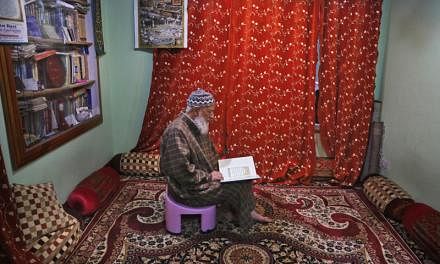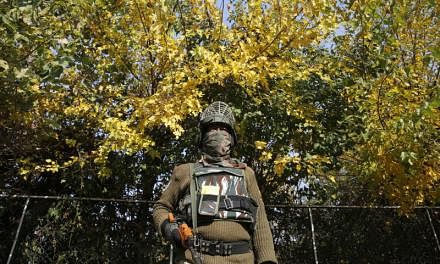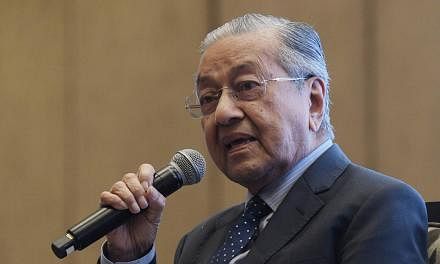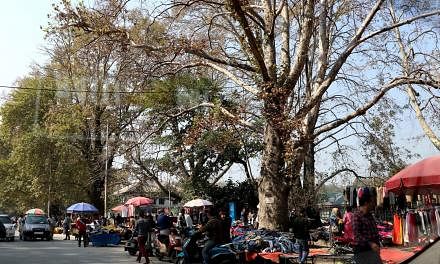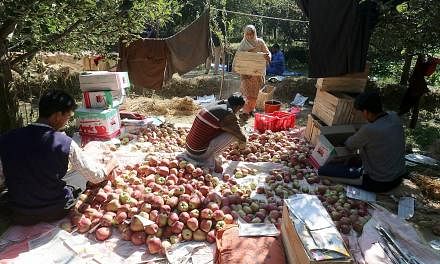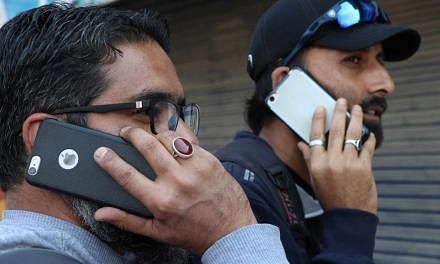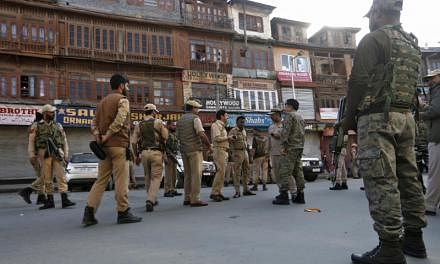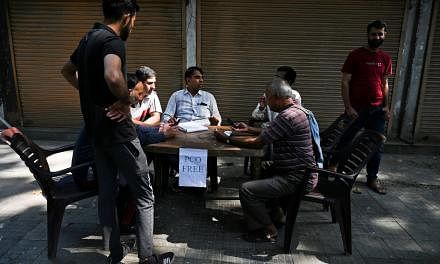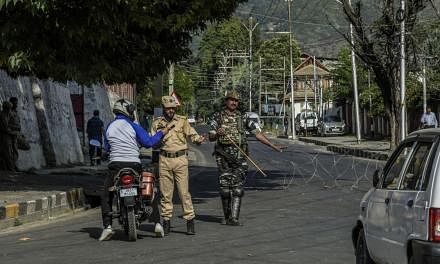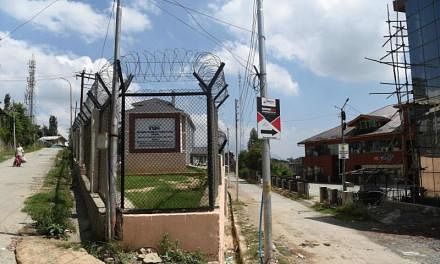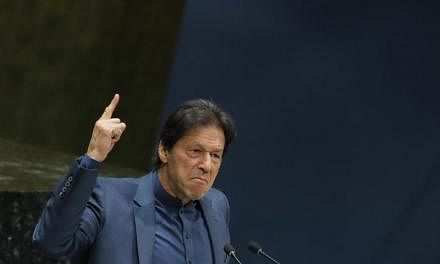NEW DELHI (BLOOMBERG) - Prime Minister Narendra Modi's decision to scrap autonomy for Kashmir after imposing an unprecedented lockdown across the region will be tested on Friday (Aug 16) at the United Nations Security Council after India's top court deferred a case calling on the government to lift restrictions that have been in place for the past 12 days.
A Supreme Court bench headed by Chief Justice Ranjan Gogoi adjourned a petition challenging the information blackout.
Another plea questioning the government's move to scrap the constitutional provision, as it was taken without the consent of the state's legislature, was also postponed on grounds of being badly drafted.
Both will be taken up at a later date, the court said without giving any details.
The United Nations Security Council is expected to hold a closed-door meeting after China backed Pakistan's call for the international body to discuss India's decision on the disputed Muslim-majority state. The last time the full Security Council met to discuss the Himalayan region was in 1965.
The developments are the first concrete steps questioning Mr Modi's decision to convert Jammu and Kashmir into two federally administered regions, separating Buddhist-majority Ladakh along its China border.
The surprise move gives Mr Modi's administration control of the local police and allows Indians outside Kashmir to buy land. On its part, New Delhi said it would usher in prosperity for the region where as many as 42,000 people including civilians, army, police and militants have died in violence in the last three decades.
CEASEFIRE VIOLATION
Mr Modi's Kashmir decision may have fulfilled a campaign promise made to his Hindu support base, which opposed special treatment for the region but has led to an escalation of tensions with rival and neighbour Pakistan. The state has been the main flashpoint between the nuclear armed neighbours, who have fought three wars since the British left the subcontinent in 1947.
Pakistan on Aug 15 accused India of killing its soldiers in what it called "unprovoked ceasefire violations". India denied Pakistan's claim of the killing of the three soldiers. A spokesman of Indian Army said it is "fictitious".
India has called the Kashmir decision an internal matter with no bearings on its international borders with Pakistan and China, however Beijing was quick to criticise the move.
It issued a strongly-worded statement last week questioning the impact on the mainly Buddhist region of Ladakh - an area of strategic importance nestled between Tibet and Pakistan.
Still, with Beijing's main focus on its relationship with the US and the trade war, it is not clear how much effort it will devote to pushing the Kashmir issue at the United Nations Security Council, said Mr C. Uday Bhaskar, director at the Society for Policy Studies in New Delhi.
"There is a low probability that China is going invest all its diplomatic energy to support Pakistan to India's discomfiture," Mr Bhaskar said on Friday.
The Indian government will reopen Jammu and Kashmir secretariat and other government offices from Friday while easing other restrictions would depend on developments after the Friday prayers, the Press Trust of India reported.

